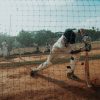In the latter part of 2012, Xander*, 28, decided to get himself tested for the Human Immunodeficiency Virus (HIV). He had, at that time, what he believed were “what could only be symptoms of being infected with HIV – or at least from everything I have until then read: from (seemingly unending) loose bowel movement, to on-and-off fever, to extreme weight loss…” As he now puts it, he was at a point when “I just had to know my status, so that – whether I tested positive or not – I knew what I then could do to (remedy) everything that was happening to me.”
In the Philippines, those who get tested are (usually) given the rapid test first (after a pre-test counseling, as mandated by the Republic Act 8504 or AIDS Law). If their result is non-reactive, it is recommended that they return some three months after their suspected risk exposure for a follow-up test; but if their result is reactive, the blood sample taken from them is forwarded to the STD/AIDS Cooperative Central Laboratory (SACCL) of San Lazaro Hospital (in Metro Manila) for a more comprehensive test to be done to confirm the result. This step – the “confirmatory test” – is what ascertains if a person is “positive” or “negative”.
Xander’s rapid test result was “reactive”. And so he was asked to “wait for the confirmatory result,” he recalled. “I was told that it will take two weeks – the usual. But I was also told that since there were non-working holidays (then), I should expect for the confirmation to be released at least three or even more weeks from when I tested reactive.”
The confirmatory result is needed “for the next moves (in my life as HIV-positive) – whether I will be allowed to take my CD4 test, or already start my medication, or whatever,” Xander recalled. “But as I was told then, I had to wait for… two or more weeks.”
In what one of his counselors said was an “impatient move”, “since he just wanted me to wait for the confirmatory result,” Xander (“Driven by the symptoms I had that were worsening by the day”) decided to cough up over P3,000.00 for a CD4 test. He found out that his CD4 count was “but a single digit.” A single digit is, in Xander’s expression, “panic-causing”, because the “’acceptable’ CD4 count is 200; and – get this! – in countries like the Philippines, when the CD4 is less than 350, people with HIV are recommended to already start taking antiretroviral drugs (ARVs). A single digit is way too far from what’s ‘ideal’.”
Xander believes that “had I waited for the two or more weeks, my situation could just have worsened; I wouldn’t even be here now,” he said.
Xander’s counselors didn’t give him comfort, too, telling him their experiences with past clients who, while waiting for their confirmatory test results, died.
For Xander, “soon after I knew my CD4 count, my antiretroviral treatment (ART) was started.” And while he still doesn’t know his new count, “there’s comfort in knowing I am already doing what can be done to alleviate my situation.” In hindsight, though, he said that “just imagine if I was a broke gay guy, and I waited for the more than two weeks before anything was done about my situation… It probably would have been too late for me then.”
The two (or more) weeks of waiting for the confirmatory result are – for Xander – “two weeks of agony. And it is, for many like me, an unnecessary waiting period that needs to be reconsidered.”
PROBLEM RECOGNIZED
In an email interview, Dr. Rossana A. Ditangco, research chief of the Research Institute for Tropical Medicine (RITM) said that, “yes, the Department of Health (DOH) recognizes this problem on waiting time to get the confirmatory test result.” In fact, to address this, the national reference laboratory – which is SACCL – has already increased the frequency of doing the test to two times a week, Ditangco said.
“But of course there are still problems, particularly for specimens coming from outside Metro Manila, which would require shipment of specimen and mailing of the results, which could increase the turnaround time of the test,” Ditangco said.
Already, “DOH is in the process of reviewing the country algorithm to come up with a testing strategy most suitable to the current country HIV epidemiology that would shorten the waiting time for the result without compromising the accuracy of the test result,” she added.
CHANGING APPROACHES
Related to this, the treatment hubs in the Philippines are implementing various initiatives to ensure that care and support is continuous.
In Davao City, for instance, Dr. Alice Layug, chairperson of the Southern Philippines Medical Center (SPMC) Treatment Hub, said that “in our case, we send our specimens for confirmation to SACCL, (with the) results released and sent to us here in Davao City after two to three weeks. Therefore, the waiting period is controlled by SACCL (the laboratory) and not by the treatment centers like us.” Nonetheless, “during this waiting period, continuous patient counseling is already being done in our center.”
Meanwhile, RITM is implementing what is called as the 3S project, “part of which is the same day test result that ensures the continuum of care approach so that clients who test positive would not be lost to care,” Ditangco said.
FOCUS: RE-FOCUS
There is a need to highlight the need for early detection, too.
Ditangco said that the delay in release of the result leading to delay in CD4 test – as in the case of Xander – is “not the reason why patients have poor outcomes. The most important problem of delay in release of confirmatory (results) is that patients no longer come back to get their results, hence are lost to care and would only come back when already in the advance stage of immune deficiency,” she said.
For Xander, “getting rid of the two-week waiting could ensure people get the results ASAP,” he said. “Two weeks is 14 days too many. Particularly when you’ve already been told your (initial) test result is already ‘reactive’. Your life is changed the moment you hear that – and they make you wait for 14 or more days to, what, agonize over it? Fourteen days can be a lifetime, is what I say.”
Nonetheless, Ditangco stressed that even “for patients who are tested during the advance stages of HIV, the CD4 is not that critical anymore because the patient can be managed based on clinical conditions even without the CD4 test.”
Layug agreed. On the narrative that some clients were not able to claim their results because they may have died while waiting for their results, “let me clarify and correct misinformation in this regard: The natural course of HIV infection on the average, takes about five to 10 years from infection to full blown AIDS, depending on the individual’s immunity, age, sex and presence of other co-infections. The clients… died not because of the two-week waiting period, but most likely because they were already in the very late AIDS stage when they were detected/diagnosed,” she said.
“The main problem,” Layug stressed, “is late detection and not the two-week waiting period for the confirmatory results.”
Layug added that – to encourage people to get tested earlier – “the HIV program of the country has been devising strategies to address this problem. In the last six years, the incidence of HIV in the country significantly rose among young male homosexuals and bisexuals, who account for 90% of the key affected populations and other vulnerable communities. (Efforts are being done) through massive awareness campaigns, information dissemination, outreach activities and trainings for VCT and peer educators,” she said.
Also, “the city health offices, barangay health centers, NGOs and private institutions are being capacitated to provide voluntary counseling and HIV testing in their communities. Strategies like creation of websites to cater to patients who do not want to open up are in place. Strategies to reduce stigma and discrimination are also being disseminated in health facilities,” Layug added.
JUST DO IT
Since early detection is what’s ideal in the fight against HIV, Layug is advising “everyone to have an honest self assessment of risky behaviors and undergo voluntary counseling and HIV testing immediately, because the earlier the person is tested and turn out positive, the better the outcome of treatment,” she said.
There are several treatment hubs for HIV in the Philippines and ARVs are available in these treatment hubs for free.
In fact, “patients who are treated early can go back to their normal activities and some even have undetectable viral load after two to three years of ARV treatment,” Layug said.
For Ditangco, “for those who fear to undergo the test, knowing your HIV status is a win-win situation,” she said. “If you have it, then you can do something about it. With treatment and healthy lifestyle, a person with HIV can live as long as somebody without HIV. So if you are smart, your decision should be to get an HIV test.”
And on this, Xander expressed his agreement.
“Don’t wait ‘til you worsen before getting tested – as I did,” he said. “Because after all the drama that comes with getting the positive result (the shock, the depression and all that), things do get back to normal. But again, only when you know your status, particularly early on.”
*NAME CHANGED AS REQUESTED FOR THE PRIVACY OF THE INTERVIEWEE





























































